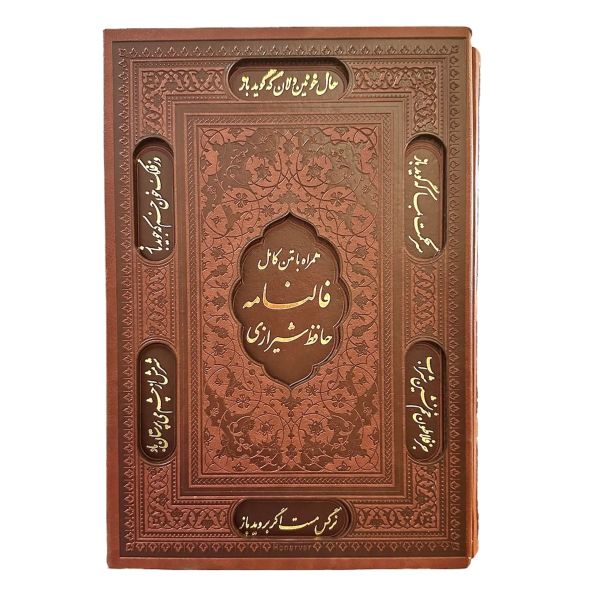FREE domestic ground shipping for eligible grocery orders of 60.00 (excluding ready-to-eat meals) and above!
**Orders containing refrigerated items are shipped weekly on Mondays, Tuesdays and Wednesdays only.**
Our free domestic ground shipping is handled by UPS. We do not guarantee any delivery times for ground shipping. Isolated delayed deliveries are possible.
Kindly Consider Overnight or Second Day shipping methods if you need to have a guaranteed delivery time frame.
Comprehensive High Quality Hafez Poetry Book
$89.99
Khwāja Shams-ud-Dīn Muḥammad Ḥāfeẓ-e Shīrāzī (Persian: خواجه شمسالدین محمد حافظ شیرازی), known by his pen name Hafez (حافظ Ḥāfeẓ 'the memorizer; the (safe) keeper'; (1315-1390) and as "Hafiz", was a Persian poet who "lauded the joys of love and wine but also targeted religious hypocrisy".His collected works are regarded as a pinnacle of Persian literature and are often found in the homes of people in the Persian speaking world, who learn his poems by heart and still use them as proverbs and sayings. His life and poems have been the subject of much analysis, commentary and interpretation, influencing post-14th century Persian writing more than any other author.
This gorgeous copy of Hafez comes in leather/wood box. The cover and the book are decorated in gold color calligraphy. The pages inside all have historic Persian design/colored paintings on borders of all the pages.
Sold as one hardback book inside its leather/wood covering box
Availability:
In stock
SKU
PBM-BK-562060
Khwāja Shams-ud-Dīn Muḥammad Ḥāfeẓ-e Shīrāzī (Persian: خواجه شمسالدین محمد حافظ شیرازی), known by his pen name Hafez (حافظ Ḥāfeẓ 'the memorizer; the (safe) keeper'; (1315-1390) and as "Hafiz", was a Persian poet who "lauded the joys of love and wine but also targeted religious hypocrisy".His collected works are regarded as a pinnacle of Persian literature and are often found in the homes of people in the Persian speaking world, who learn his poems by heart and still use them as proverbs and sayings. His life and poems have been the subject of much analysis, commentary and interpretation, influencing post-14th century Persian writing more than any other author.
Hafez is best known for his poems that can be described as "antinomian" and with the medieval use of the term "theosophical"; this term theosophy in the 13th and 14th centuries was used to indicate mystical work by "authors only inspired by the holy books" (as distinguished from theology). Hafez primarily wrote in the literary genre of lyric poetry, or ghazals, that is the ideal style for expressing the ecstasy of divine inspiration in the mystical form of love poems.
Themes of his ghazals are the beloved, faith, and exposing hypocrisy. In his ghazals, he deals with love, wine and tavern, all presenting the ecstasy and freedom from restraint, whether in actual worldly release or in the voice of the lover speaking of divine love[self-published source] His influence in the lives of Persian speakers can be found in "Hafez readings" (fāl-e hāfez, Persian: فال حافظ) and the frequent use of his poems in Persian traditional music, visual art, and Persian calligraphy. His tomb is visited often. Adaptations, imitations and translations of his poems exist in all major languages.
Write Your Own Review




